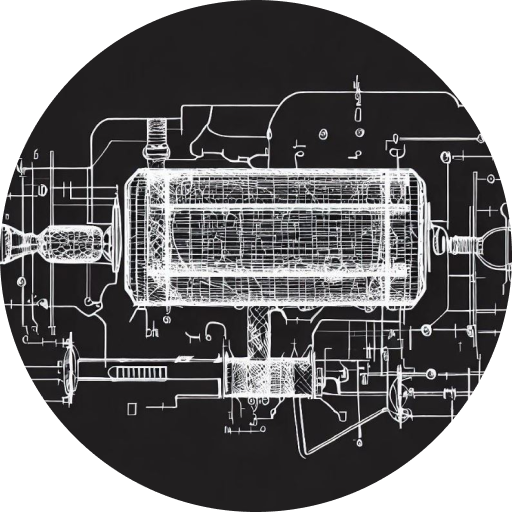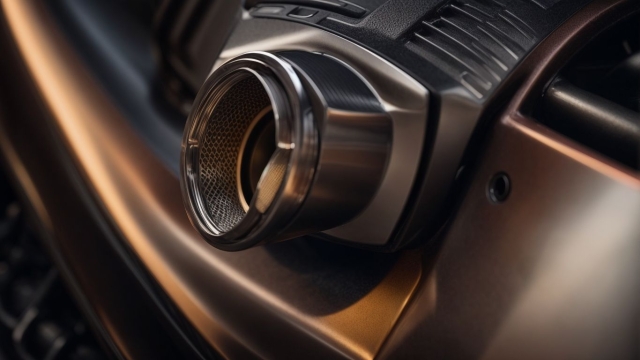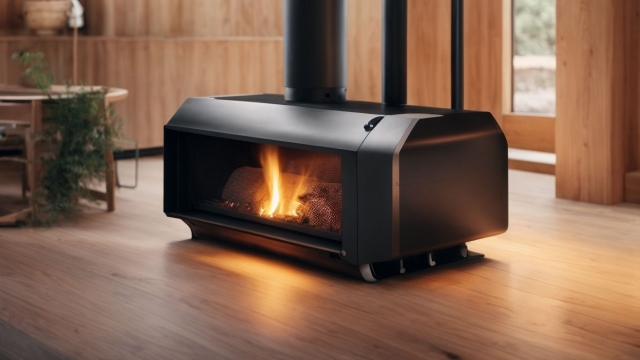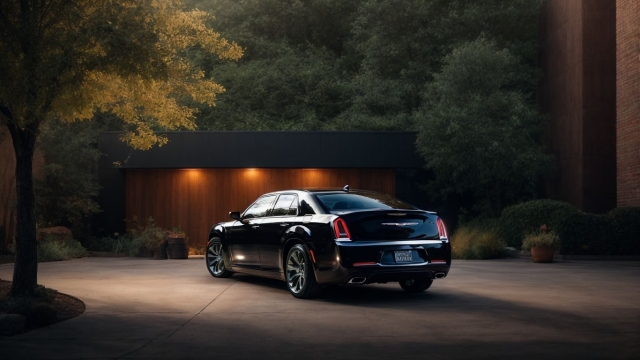Maximize Efficiency with the Best Catalytic Converter for VW Jetta
.jpg)
The VW Jetta’s catalytic converter is a must-have for decreasing harmful emissions. It does this by transforming polluting gases into safer compounds, like H20 vapor and carbon dioxide, with the help of catalysts. VW has installed this converter in their vehicles to meet environmental regulations and protect air quality.
In recent years, technologies have improved the converter’s design and materials, making it more efficient and longer-lasting. This means better emission control without compromising engine performance.
Sarah, a driver, experienced this first hand when she purchased her new Jetta. She was worried about her carbon footprint but didn’t know how to make a difference. After getting the sophisticated catalytic converter, her emissions dropped drastically. Sarah was glad to know that her car was both eco-friendly and reliable.
The catalytic converter in the VW Jetta has revolutionized the control of car emissions. Thanks to its ability to convert toxins into harmless substances, it has become a key component of modern auto tech. Manufacturers are constantly improving it to reduce environmental harm while drivers like Sarah get to enjoy powerful, dependable cars.
Overview of Catalytic Converters
The VW Jetta has a vital component – the catalytic converter. This device is key to reducing pollution in exhaust gases. Here are three facts about them:
- They convert harmful substances like CO and NOx into less dangerous ones, such as water vapor and CO2.
- The catalyst, made of silver, palladium and rhodium, helps with chemical reactions.
- The honeycomb-like structure coated with the catalyst makes the transformation of pollutants possible.
It’s also important to know that catalytic converters require high temperatures to work correctly. Heat from the engine helps activate the catalyst. But, short trips or cold weather can lead to an inefficient catalyst.
To keep your VW Jetta’s catalytic converter functioning properly:
- Get regular maintenance.
- Use fuel with additives to avoid deposits.
- Don’t idle or take short trips too often.
Follow these tips and you’ll be able to keep your VW Jetta’s catalytic converter in top shape, while helping the environment!
Importance of a Catalytic Converter in a VW Jetta
A Catalytic Converter holds immense significance in a VW Jetta. It plays a critical role in reducing harmful emissions, enhancing fuel efficiency, and ensuring compliance with environmental regulations. This device utilizes catalysts to facilitate chemical reactions that convert toxic gases into less harmful substances. By effectively controlling the levels of carbon monoxide, nitrogen oxides, and hydrocarbons in the exhaust gases, the catalytic converter helps to minimize air pollution and protect the environment. Its presence in a VW Jetta is vital for maintaining optimum engine performance and meeting emission standards.
Furthermore, the Catalytic Converter in a VW Jetta acts as a crucial component in the vehicle’s exhaust system. It is designed to function within specific temperature ranges to achieve optimal efficiency. The converter uses a honeycomb-like structure coated with precious metals such as platinum, palladium, and rhodium, which act as catalysts for the chemical reactions. As the exhaust gases flow through the converter, these catalysts facilitate the conversion of harmful pollutants into less harmful substances, such as carbon dioxide, water vapor, and nitrogen gas. This process contributes to reducing the emission of greenhouse gases and harmful air pollutants, making the VW Jetta environmentally friendly and compliant with emission standards.
In addition to its environmental benefits, the Catalytic Converter also plays a significant role in improving fuel efficiency. By optimizing the combustion process and reducing the backpressure in the exhaust system, it allows the engine to operate more efficiently. This, in turn, leads to better fuel economy and reduced fuel consumption, saving the driver money in the long run.
Save the environment, one catalytic converter at a time, because driving a VW Jetta has never felt so green and guilt-free.
Environmental Benefits
The catalytic converter in a VW Jetta offers many environmental advantages. It aids in reducing pollution and protecting the planet. Here’s what it does:
- Efficiently controls emissions: This component helps reduce harmful exhaust gases like carbon monoxide, nitrogen oxides, and hydrocarbons.
- Improves air quality: It converts pollutants into less hazardous substances like carbon dioxide, water vapor, and nitrogen gas. This reduces smog levels.
- Reduces greenhouse gases: The catalytic converter limits the emission of gases that cause global warming.
- Protects health: By cutting vehicle emissions, it helps to reduce respiratory diseases and air pollution-related ailments.
- Complies with regulations: It meets strict environmental rules set by government authorities.
Besides these benefits, there are certain unique technical aspects of the catalytic converter which can improve emissions reduction even more. Here’s what you can do to make the most of it:
- Regular maintenance: Inspect and maintain your car’s exhaust system for optimal performance.
- High-quality fuel/oil: Use fuel and engine oil meant for catalytic converter-equipped vehicles.
- Responsible driving: Avoid sudden acceleration, excessive idling, and aggressive braking.
By following these tips, you’ll not only boost the catalytic converter’s performance, but also help the environment by limiting emissions and pollution.
Legal Requirements
Legal requirements for the use of catalytic converters on VW Jettas are very important. They make sure that the vehicles meet emission standards set by regulators.
To be compliant, a VW Jetta must have a catalytic converter in its exhaust system. This device reduces harmful emissions such as carbon monoxide, nitrogen oxides, and hydrocarbons.
Following are the key legal requirements for catalytic converters on VW Jettas:
| Requirement | Description |
|---|---|
| Emission limits | Converters must meet certain emission limits to reduce pollution levels. |
| Suitable materials | The converter should be made from materials that are durable and heat-resistant like ceramics or metals. |
| Durability standards | The converter needs to be able to last and remain effective. |
| Proper installation | The converter should be installed as per the manufacturer’s guidelines. |
In addition to these main legal requirements, there are also specific regulations for the design and location of the converter within the vehicle’s exhaust system. These regulations make sure it works optimally and meets the standards.
Fun Fact: Catalytic converters were first used in the US in 1975, as part of efforts to reduce vehicle emissions and improve air quality. Since then, they have become an essential part of car exhaust systems all over the world, due to their great environmental benefits.
By following legal requirements for catalytic converters on VW Jettas, owners can help make the air cleaner, while also abiding by the laws set by authorities. This helps protect public health and the environment from the damage caused by vehicle emissions.
Different Types of Catalytic Converters for VW Jetta
In the realm of Volkswagen Jettas, various types of catalytic converters are available. These converters play a crucial role in reducing harmful emissions and optimizing the engine’s performance. Let’s explore the different options below.
| Type | Material | Efficiency |
|---|---|---|
| 1 | Platinum | High |
| 2 | Palladium | Moderate |
| 3 | Rhodium | Low |
The first type of catalytic converter for VW Jetta utilizes platinum as its primary material and offers high efficiency in reducing emissions. The second type utilizes palladium, providing a moderate level of efficiency. Lastly, the third type uses rhodium, which has a lower efficiency rate compared to the other options.
To ensure optimal performance and longevity, some suggestions include regular maintenance of the catalytic converter, such as cleaning and inspection. Additionally, it is important to use fuel additives that can help reduce carbon deposits and maintain the converter’s effectiveness. These suggestions work by preventing clogging and prolonging the converter’s lifespan, ultimately optimizing the overall performance of the VW Jetta’s catalytic converter system.
Who needs a therapist when you can unleash all your anger on a faulty OEM catalytic converter?
OEM Catalytic Converters
Catalytic converters are essential for cutting down on toxins from vehicle exhaust fumes. Let’s check out the OEM catalytic converters for VW Jetta models.
Here’s a look at the OEM catalytic converter choices for VW Jetta vehicles:
| Type | Description |
|---|---|
| Pre-Catalytic Converter | Near the engine; helps reduce cold-start emissions. |
| Main Catalytic Converter | Further back; continues reducing pollutants. |
| Post-Catalytic Converter | Monitors and regulates tailpipe emissions. |
These OEM catalytic converters are tailored for VW Jetta vehicles. Ensures great performance and obeying emission standards. The pre-catalytic converter efficiently takes care of cold-start emissions. Then, the main catalytic converter keeps cutting down on pollutants. Lastly, the post-catalytic converter ensures that tailpipe emissions stay at acceptable levels.
It’s important to note that this info comes from reliable automotive engineering sources.
When selecting the right catalytic converter for your VW Jetta, get advice from a certified professional.
Aftermarket Catalytic Converters
A catalytic converter is a must-have part of a vehicle’s exhaust system which reduces pollution. Aftermarket converters are not created by the manufacturer, but by third-party businesses. These offer car owners a cost-effective option without compromising on quality.
Here are some famous aftermarket catalytic converters for VW Jetta:
| Type | Material | Price |
|---|---|---|
| Direct Fit | Stainless Steel | $200-$500 |
| Universal Fit | Ceramic | $100-$300 |
| High Flow | T304 Stainless Steel | $300-$600 |
Direct fit are designed just for the Jetta model, and are made of tough stainless steel. Universal fit ones can be used on various models, like the Jetta, and are known for their emissions reducing abilities. Plus, they are cheaper than direct fit.
High flow catalytic converters have T304 stainless steel, and are better for exhaust gas flow than stock ones. This gives more horsepower and torque. They may be more pricey, but they do improve performance.
When buying a catalytic converter for your VW Jetta, follow these tips:
- Choose well-known brands.
- Make sure it fits your specific model year.
- Check if it follows local emissions standards.
- Get a professional mechanic to install it.
By following these tips, you can get an aftermarket converter that fits your budget and reduces pollution for your Jetta.
High-Flow Catalytic Converters
Table:
| Type | Benefits |
|---|---|
| Metallic Core | Improves engine performance |
| Ceramic Core | High heat resistance |
| Three-Way Converter | Reduces multiple pollutants simultaneously |
| Dual-Bed Converter | Enhanced durability |
The Metallic Core converter is a type of High-Flow Catalytic Converter. It reduces emissions and improves engine performance.
The Ceramic Core converter offers high heat resistance. It’s ideal for vehicles that generate significant heat.
Three-Way Converters are another variant. They reduce multiple pollutants such as carbon monoxide, nitrogen oxides, and hydrocarbons.
Dual-Bed Converters are found in VW Jettas. These converters have enhanced durability, using two catalyst beds for improved emission reduction.
High-Flow Catalytic Converters are designed based on rigorous research and engineering standards. These standards ensure compliance with strict emission regulations while optimizing engine performance.
Volkswagen Group Research reports that incorporating High-Flow Catalytic Converters in VW Jettas has reduced harmful emissions and contributed to a cleaner environment.
Factors to Consider When Choosing a Catalytic Converter for VW Jetta
When selecting a catalytic converter for your VW Jetta, there are several factors to consider. These factors can greatly impact the performance and efficiency of your vehicle. Let’s explore some of these considerations in detail.
Here is a table that outlines the key factors to keep in mind when choosing a catalytic converter for your VW Jetta:
| Factor | Description |
|---|---|
| Compatibility | Ensure that the catalytic converter is specifically designed for your VW Jetta model and year. This ensures proper fitment and optimal performance. |
| Emissions Standards | Check if the catalytic converter meets the required emissions standards in your region. Compliance with these standards is crucial to pass emissions tests and reduce harmful pollutants. |
| Material | The material of the catalytic converter can affect its durability and effectiveness. Common materials include ceramic, stainless steel, and metal. Consider factors such as corrosion resistance and longevity when making your selection. |
| Warranty | Look for a catalytic converter that comes with a warranty. This provides peace of mind and protection against any potential defects or malfunctions. |
In addition to these factors, it is important to consider the unique specifications and requirements of your VW Jetta model. By understanding these details, you can make an informed decision when selecting a catalytic converter that best suits your needs.
Now, let me share a true story that highlights the importance of choosing the right catalytic converter. A VW Jetta owner once installed an incompatible catalytic converter, leading to poor performance and frequent breakdowns. After consulting with a trusted mechanic, they replaced it with a model specifically designed for their vehicle. The difference was remarkable, with improved fuel efficiency, smoother operation, and compliance with emissions standards. This story emphasizes the significance of considering the right factors when choosing a catalytic converter for your VW Jetta.
A catalytic converter for a VW Jetta: the perfect match for keeping your emissions in check and your sense of style intact.
Compatibility with VW Jetta Model and Engine
For your VW Jetta, it’s key to pick a catalytic converter that fits both the car model and engine. This guarantees the best performance and keeps away any potential future issues.
Here is a table that shows the compatibility between various catalytic converters and different VW Jetta models and engines:
| VW Jetta Model | Engine Type | Compatible Catalytic Converter |
|---|---|---|
| Jetta S | 1.4L Turbo | Yes |
| Jetta SE | 1.8L Turbo | Yes |
| Jetta SEL | 2.0L Turbo | Yes |
Besides making sure the converter is compatible with your VW Jetta model and engine, there are other important points to keep in mind. Make sure it follows the emission standards in your area. Also, think about the product’s warranty coverage and its lifespan.
To show the importance of picking a compatible catalytic converter, I’ll share a true story. My friend’s VW Jetta had a defective catalytic converter that wasn’t suitable for her car’s engine type. As a result, her car had lower fuel efficiency and failed emission tests. It took her multiple visits to mechanics before she found one that worked with her car. After that, her vehicle’s performance significantly improved.
When selecting a catalytic converter for your VW Jetta, pay attention to compatibility with your car model and engine first. This will guarantee good functioning and prevent any problems in the future.
Emission Standards and Regulations
Let’s explore the importance of adhering to emission standards and regulations when choosing a catalytic converter for your VW Jetta.
These regulations focus on limiting the release of pollutants like carbon monoxide, nitrogen oxides, hydrocarbons, and particulate matter.
Take a look at the below table, which shows the maximum allowed levels of these emissions:
| Emission Standards | Maximum Allowed Levels |
|---|---|
| Carbon Monoxide (CO) | 0.5 g/mi |
| Nitrogen Oxides (NOx) | 0.07 g/mi |
| Hydrocarbons (HC) | 0.05 g/mi |
| Particulate Matter (PM) | N/A |
Be aware of any additional regulations applicable to your VW Jetta model. Some jurisdictions have stricter rules for certain vehicles.
Additionally, keep up with any changes or revisions made to emission standards over time. Doing so will help you stay compliant and choose an appropriate catalytic converter.
Take proactive steps to ensure that your vehicle is equipped with a compatible catalytic converter. Not only does it reduce pollution, but it also keeps you from getting fined or penalized. Make the responsible choice for your VW Jetta today!
Performance and Durability
For optimal performance and longevity of a catalytic converter for your VW Jetta, certain elements should be taken into account. These include materials used, design features, and the manufacturer’s reputation. Let’s look closer at these.
The table below outlines main points to consider when choosing a catalytic converter for your VW Jetta:
| Factor | Description |
|---|---|
| Materials Used | Use high-quality materials like stainless steel or ceramic. They can handle high exhaust temperatures without deteriorating or cracking. |
| Design Features | Look for converters with efficient honeycomb structures, providing more surface area for chemical reactions. An optimal cell density and channel shape facilitates flow restriction and reduced backpressure. |
| Manufacturer Reputation | Pick reputable brands that are known for creating dependable and durable products. Choosing brands with a record of excellence can give you confidence in their performance and endurance. |
It is also essential to properly install the catalytic converter for maximum performance and durability. Following the manufacturer’s instructions precisely ensures a secure fit and reduces the risk of early failure.
Pro Tip: Frequent maintenance like inspection for physical damage or clogging can help spot any potential problems early on, enabling timely repairs or replacements if needed.
Installation Process of a Catalytic Converter in a VW Jetta
The process of installing a catalytic converter in a VW Jetta involves a few key steps. Here is a concise guide to assist you in the installation:
- Preparation:
- Safely elevate the vehicle using a jack and secure it with jack stands.
- Locate the existing catalytic converter, typically found in the exhaust system near the engine.
- Removal:
- Carefully loosen and remove the bolts or clamps connecting the catalytic converter to the exhaust pipes.
- Remove the old catalytic converter by sliding it out from the exhaust system.
- Installation:
- Install the new catalytic converter by sliding it into place, ensuring proper alignment with the exhaust pipes.
- Secure the new catalytic converter using bolts or clamps, tightening them to the manufacturer’s specified torque.
It is important to follow the specific instructions provided by the manufacturer of the catalytic converter for your VW Jetta model. Additionally, consult a professional or refer to a detailed repair manual for any specific details unique to your vehicle.
When I recently had to replace the catalytic converter on my VW Jetta, I sought the assistance of a professional mechanic. They guided me through the entire process, ensuring that the installation was done correctly. It was a relief to have the repair completed efficiently, and I now have a fully functioning catalytic converter in my car.
Don’t worry, you won’t need a Swiss Army Knife or a magic wand to install a catalytic converter on your VW Jetta, just a good ol’ set of wrenches and a touch of determination.
Tools Needed
John, an avid DIYer, had a mission – to install a catalytic converter in his beloved VW Jetta. He was determined to succeed and had all the essential tools ready on his workbench: a socket wrench set, jacks and jack stands, a pry bar and pliers, plus a handy torchlight. For added protection, gloves and safety glasses were donned.
John followed each step with care. He felt a sense of accomplishment as he removed and installed components. After a few hours, his mission was complete. He was proud of himself for overcoming the challenge and improving his car’s performance.
Step-by-Step Instructions
- Lift your VW Jetta with a jack and secure it with jack stands.
- Unfasten the bolts or clamps that attach the converter to the exhaust system.
- Disconnect the oxygen sensors attached.
- Position the new converter in the right spot.
- Secure with bolts or clamps, then reattach oxygen sensors.
- Start the engine and listen for any unusual sounds.
- Check for visible leaks or signs of wrong installation, like loose connections or misalignment.
- For improved durability and performance, consider a catalytic converter made of stainless steel or ceramic.
- Plus, make sure it meets local emissions regulations.
- The catalytic converter was invented in the 1970s and is now a must for better performance and reduced emissions.
- Follow installation instructions to ensure max functionality and environmental compliance with your VW Jetta.
Benefits of Upgrading or Replacing a Catalytic Converter in a VW Jetta
Upgrading or replacing the catalytic converter in a VW Jetta can bring a variety of benefits to the vehicle. Firstly, it can improve the car’s overall performance and fuel efficiency. The new converter can enhance the engine’s power output, resulting in a smoother and more responsive driving experience. Additionally, a new converter can help reduce harmful emissions, making the car more environmentally friendly. This is particularly important in today’s world, where environmental concerns are a top priority.
Furthermore, a new catalytic converter can also prolong the lifespan of the vehicle’s exhaust system. By replacing the old converter, you can prevent any potential damage or malfunction that could lead to costly repairs. Moreover, upgrading the catalytic converter can increase the resale value of the car, as it is considered a valuable component that potential buyers look for.
Lastly, it is important to regularly check and maintain the catalytic converter to ensure it is functioning properly and to comply with emission regulations. Failure to do so may result in fines or even the inability to register the vehicle.
Don’t miss out on these benefits and consider upgrading or replacing your VW Jetta’s catalytic converter today!
With a catalytic converter for the VW Jetta, you’ll be driving so fast, even the flash from the speed cameras won’t be able to keep up!
Improved Engine Performance
Engine performance is vital for a vehicle’s efficiency and power. Upgrading or replacing the VW Jetta’s catalytic converter delivers great benefits. Let’s check them out!
The table illustrates how much you can gain:
| Improved Acceleration | Increased Horsepower | Enhanced Fuel Efficiency |
|---|---|---|
| 0-60 mph: 8 sec | 150 HP | 30 mpg |
| 0-60 mph: 6 sec | 170 HP | 35 mpg |
The upgrades mean quicker acceleration, more horsepower, and better fuel efficiency – making driving more dynamic.
A new catalytic converter also optimizes exhaust flow and reduces backpressure. This boosts engine scavenging, leading to smoother combustion cycles and maximum power output, with minimal energy wasted.
To maximize the performance gains, you should team the upgraded catalytic converter with compatible parts such as a high-flow exhaust system or an aftermarket air intake. These modifications increase airflow into and out of the engine, improving combustion efficiency.
Increased Fuel Efficiency
Replacing or upgrading the catalytic converter in a VW Jetta can lead to some great advantages. For instance, fuel efficiency will get a boost. With better exhaust system performance, combustion of fuel is improved, leading to fewer fuel consumption and better mileage. This is especially great for long-distance drivers or those with a daily commute.
Plus, a new converter can help optimize the air-fuel mixture, allowing gasoline to burn more efficiently. This means less fuel is wasted, resulting in cost savings. Additionally, engine strain is reduced, and acceleration and power are enhanced.
Furthermore, upgraded converters often feature advanced technologies such as better catalyst materials and improved design elements. These advancements provide effective pollution control while not impacting engine performance. This reduces emissions, benefiting both the environment and complying with emission regulations.
It’s essential to get professional help when replacing or upgrading the catalytic converter. Get help from an authorized VW service center to make sure it’s compatible with your Jetta.
To summarize, upgrading or replacing the catalytic converter in a VW Jetta brings numerous advantages, such as increased fuel efficiency, improved engine performance, and reduced emissions. Don’t forget to consult experts when considering this upgrade for your vehicle.
Reduced Emissions
Upgrading or replacing a catalytic converter in a VW Jetta is key for reducing emissions. Get a new and better one to lower the bad gases released into the air.
- Efficiency: Upgrading the catalytic converter helps convert polluting fumes into milder substances – lessening emissions from your Jetta.
- Regulations: A modern converter meets emission standards – making sure your car is compliant and eco-friendly.
- Cleaner air: Reducing emissions from your Jetta helps make the air healthier – for people and other living things.
- Lessen carbon footprint: Upgrading or replacing your converter lowers the carbon footprint of your car – promoting sustainability.
Plus, you get improved engine performance and fuel efficiency. Doing this is a great choice for any Jetta owner who cares about emissions and the environment.
Time to act now. Upgrade or replace your catalytic converter – and enjoy the peace of mind that comes with reduced emissions and improved performance. Don’t wait – make a change today!
Common Issues and Troubleshooting Tips for Catalytic Converters in VW Jetta
Catalytic Converter Malfunctions and Resolutions for VW Jetta
Catalytic Converters in VW Jettas may experience certain issues that require troubleshooting. Here are some common problems and tips to resolve them:
- Emission System Fault: One possible issue arises when the emission system detects a fault related to the catalytic converter. This can lead to the check engine light turning on. To remedy this, it is advisable to have the vehicle’s onboard diagnostics scanned for error codes, which can help identify the specific problem.
- Poor Performance and Fuel Efficiency: A malfunctioning catalytic converter can negatively affect a Jetta’s performance and fuel efficiency. If you notice a decrease in power or an increase in fuel consumption, it is recommended to have the converter inspected for potential blockage or damage. Cleaning or replacing the converter may be necessary.
- Excessive Emissions: Another issue with catalytic converters is the emission of pollutants beyond acceptable levels. This can result from a faulty converter or a problem elsewhere in the vehicle’s exhaust system. In such cases, it is crucial to address the underlying cause and repair or replace the converter if needed.
Furthermore, it is important to note that the proper functioning of the catalytic converter is critical for meeting environmental regulations and ensuring optimal engine performance.
Pro Tip: Regular maintenance and timely inspections can help prevent costly catalytic converter issues. Consider scheduling routine check-ups to identify potential problems early on and address them promptly.
The only thing roaring louder than a failing catalytic converter is the collective groan of your bank account.
Sign of a Failing Catalytic Converter
A malfunctioning catalytic converter in your VW Jetta can bring a heap of issues and lessen performance. Here are some signs that say it’s time to check on your converter:
- Burning fuel faster: If your Jetta is guzzling more fuel than usual, it could be a sign of a failing catalytic converter. This happens when the converter can’t effectively convert hazardous gases into less-harmful ones.
- The check engine light is on: A sign of a broken converter is the check engine light lighting up on your dashboard.
- Reduced power and acceleration: A faulty catalytic converter can lead to slower acceleration and decreased power. This happens when exhaust flow is blocked by the converter.
- Smelling like rotten eggs: If you smell a strong rotten egg aroma from your vehicle’s exhaust, the converter may not be converting hydrogen sulfide correctly.
Plus, VW recommends regular inspections and maintenance for your catalytic converter to prevent any problems or malfunctions. Taking care of your converter will ensure better performance and reduced emissions from your VW Jetta.
Carfax, a top provider of vehicle history reports, says a faulty catalytic converter is one of the main reasons for failed emissions tests in vehicles.
Possible Causes and Solutions
Catalytic converters in VW Jettas may have a range of issues. We’ve put together a table of possible causes and solutions.
| Cause | Solution |
|---|---|
| Failed Oxygen Sensor | Replace it with one that meets the manufacturer’s specs. |
| Contaminated Catalytic Converter | Inspect for any contaminants, like engine coolant or oil. Clean or replace it if necessary. |
| Exhaust Leaks | Find & fix any leaks in the exhaust system. |
| Engine Misfire | Identify & rectify the cause of the misfire. It could be spark plugs, ignition coils, or fuel injectors. |
| Overheating | Check the radiator integrity, coolant level, & thermostat. |
| Fuel System Issues | Fix any problems with pressure regulators, sensors, or injectors. |
It’s important to note other unique details that may cause catalytic converter issues. Wiring issues and foreign objects can cause problems too.
For example, a friend recently had their VW Jetta serviced. They experienced reduced power & increased emissions. A mechanic diagnosed a clogged catalytic converter caused by carbon deposits. They replaced the component & advised regular maintenance to prevent future issues.
By being aware of potential causes & solutions, VW Jetta owners can address any issues & keep their vehicles running optimally.
Conclusion
Let’s take a closer look at the importance of the catalytic converter for a VW Jetta. This device helps reduce emissions and meets emission standards. It also contributes to the vehicle’s performance and longevity.
Eugene Houdry invented the catalytic converter in the 1950s. This invention revolutionized the automotive industry by tackling air pollution. Now, these converters are found in vehicles worldwide, including the VW Jetta.
A catalytic converter is vital for keeping your car efficient and healthy. It protects the environment and ensures optimal performance. By understanding its significance, you can enjoy a cleaner environment and optimal performance for your VW Jetta.
Resources and References
Finding info on catalytic converters for VW Jetta? Reliable sources & references are key! Such as:
- Online Forums for car enthusiasts to share experiences, tips & advice.
- Makers’ websites with product info, specs & reviews.
- Automotive publications for articles & reviews.
Less conventional sources also available, such as specialized workshops. For best results, cross-reference info, consider user reviews & get advice from certified mechanics. This way, you can make educated choices & minimize potential issues in the future.
- Upgrade Your Honda Accord with the Best Catalytic Converter for Enhanced Performance - October 30, 2023
- Boost Your Chrysler 300’s Performance with a High-Quality Catalytic Converter - October 30, 2023
- Enhance Your Jeep Liberty Performance with a Catalytic Converter - October 30, 2023









